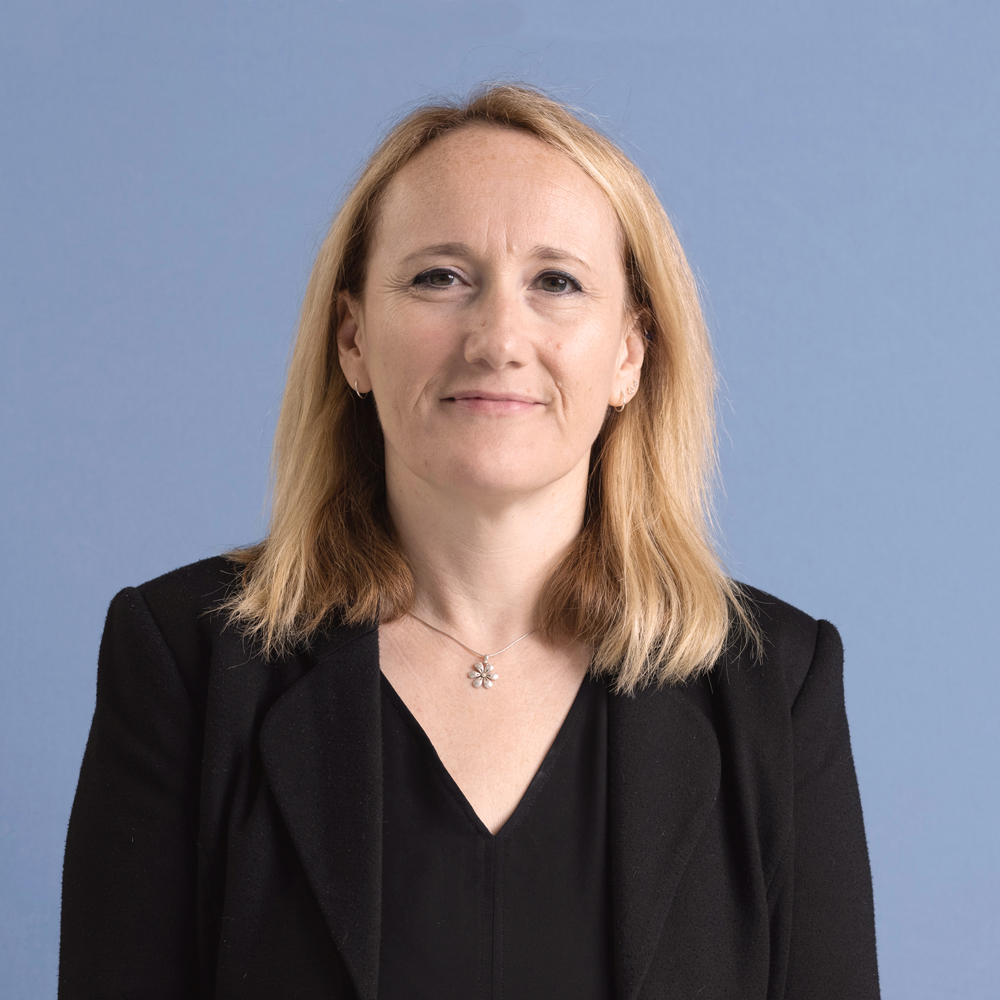Shayne Caple, Pro Global Head of Underwriting Services, always focuses on continuous improvement when supporting clients – but what does this mean in practice, and how can leading re/insurers implement and quantify it?
Continuous improvement is a hot topic right now, but it is more than just a buzzword; it’s a process that helps companies continually strive to do more, to be more. And it’s a mindset too, one which encourages teams to strive beyond the status quo, to keep moving forwards so as to not get left behind.
From small start-ups to large-scale companies, endeavouring to continuously improve operations is a way to gain both understanding and meet changing market needs. It is about being flexible and adapting to demands – a strategy which has kept Lloyd’s and the London Market buoyant for the past 300 years.
As mentioned in my recent Five Questions With… interview, the insurance sector exists to solve some of the most challenging problems in society; but to do so successfully means working collaboratively – even when undertaking the most basic of tasks such as trading and attracting new talent.
The response for most has been to undergo digital transformations, to plug in to digital ecosystems and adopt and embrace technologies such as artificial intelligence and machine learning. And while caution prevailed in the early days, this move isn’t about progress for progress’s sake; it serves a fundamental purpose – to increase productivity, employee happiness, and customer satisfaction (the building blocks of the lean management system as defined by McKinsey).

Reaping the rewards
The need for continuous improvement is being driven from all corners of the sector; from regulators, rating agencies and shareholders seeking to improve results, best practices, and company governance; to boardrooms and the underwriting floor, where directors wish to strengthen balance sheets, and underwriters seek better risk analytics.
But whatever the desired outcome, the model that continuous improvement is built upon remains unchanged: it is a process of self-reflection, to identify where inefficiencies lie and incorporate changes that solve the root of the problem, and not just the result.
Implementing true continuous improvement as a business process, however, is easier said than done, and translating propositions and ideas from the pages of shiny corporate brochures into something tangible requires expert focus and support.
Sourcing the right talent, however, can be expensive to access or hire, and it’s not always feasible to employ all the specialist expertise you might need in-house. Then there are issues with operational capacity to consider, not to mention variable underwriting cycle demands to contend with.
This is when bringing in external resources in the form of a trusted partner like Pro Global brings the biggest value and benefit to re/insurers. From the outset, our inside knowledge of the many common challenges experienced throughout the industry enables us to deliver a true perspective to really underpin where your inefficiencies lie. We then bring tried and tested, best-in-class solutions to the table, and ensure clients are getting the most out of any new processes or technologies – all while ensuring best practice is being followed.
And our practices deliver tangible results; from improvements in specialist underwriting operations, to accelerating cash flow, maximising reinsurance recoveries, releasing redundant reserves or even recovering bad debt. It is all about supporting businesses to reduce costs, enhance operational resilience and improve data quality and performance – all with the final goal of improving customer experience and benefiting your bottom line.
And what’s more, with our expert resources on board, your in-house teams are freed up to focus on the more strategic side of the business – the side that keeps you competitive and creative, and ahead of the competition.

Name: Shayne Caple
Job title: Head of Underwriting Services
To speak to the Pro Global team please feel free to reach out to us at:

To contact our PR team directly please use the link below
Shaun Linton, Head of Client Engagement at Pro MGA Global Solutions, discusses the advantages of working with an MGA, and how these benefits are helping shape a positive future for this growing sector
If our experiences at Pro MGA are anything to go by, growth in the MGA sector has been accelerating over the last two years, and it’s showing no signs of slowing down. Wherever you look in the UK, Europe or North America, MGAs are expanding and new firms are coming into the market. This is being fuelled by a combination of factors, including a drive from investors and insurers looking for returns on capital, which together with the need for greater control over staffing and technology costs is resulting in us seeing nearly double the volume of monthly enquiries.
The reason for this uptake is clear; MGAs are an all-weather distribution channel, valuable to insurers in both hard and soft markets; they are able to ‘test the waters’ with certain classes of business; and what’s more, thanks to their focus on innovative technology – which is now centre stage for MGAs – MGAs can provide exceptional service to policyholders and stakeholders in any given class of business, giving them that extra competitive edge.
But these aren’t the only advantages that MGAs offer. In terms of technology adoption and exploitation , particularly in rating hard-to-price risks, MGAs are free from legacy systems and their subsequent “tech debt” (the inefficient and duplicative processes that often plague them). What’s more, MGAs have no legacy book to distract or divert resources from managing their business – a win-win for stakeholders.

When opportunity calls
For insurers, supporting MGAs in classes of business not currently written, or those with more effective means of management, via technology or differentiating distribution channels, can be a positive move for them. In an environment where differentiation and relevance are key, not only could such a partnership help them access new distribution channels and products they otherwise would not benefit from, but it would provide them with access to strong data and analytics – a must for anyone operating a business in today’s business climate.
Of course, there are always new developments and potential disruptive situations that MGAs need to be mindful of, including servicing failures, varying business volumes, and regulatory demands – especially when venturing down the route of raising capital to create reinsurance vehicles. But with so many positives to list, it is fair to say that despite these possible hurdles, the outlook for MGAs is an optimistic one, and as long as the sector continues to differentiate itself via technology, innovation and distribution methods, I am confident that demand will continue for many years to come.

Name: Shaun Linton
Job title: Head of Client Engagement, Pro MGA Global Solutions
To speak to the Pro Global team please feel free to reach out to us at:

To contact our PR team directly please use the link below
Innovation abounds but trust, reliability and scalability are the three factors that are driving the most successful insurtech MGAs in 2023, says Pro MGA Global Solutions CEO Danny Maleary
We were delighted to see two of Pro MGA Global Solutions’ current clients listed in Post Magazine’s benchmark article: Eight insurtech startups to watch in 2023 – as well as one client who we successfully launched previously.
Lukango harnesses innovative technology to offer custom business insurance for SMEs. This talented team offers a tailored proposition with a focus on fairness and clarity that has brought refreshing and welcome choice to the product liability, public liability, stock insurance and employers liability insurance market for SMEs.
And the growth potential is clear – after all, as Lukango notes, small businesses make up over 90% of all businesses in the UK.
Similarly, Yurtle also harnesses innovative technology to deliver an employer sponsored care management platform to support family caregivers by giving people the resources and tools to set a plan and support team in place. The result, reduced burnout, and happier caregivers, and avoiding the financial cost of inaction for employers while promoting a more inclusive workplace.
And also featured on the insurtechs to watch list is a client we have previously worked with Locket (formerly known as Hiro), – which we supported with an incubation springboard for their highly successful launch and strong growth in the smart-tech powered home insurance market.
Meanwhile, innovative digital exchange InsurX – another client of Pro MGA Global Solutions – was awarded £25,000 of UK legal advice and £25,000 investment from Norton Rose Fullbright after winning their insurathon competition at the start of 2023. InsurX is a digital exchange for the London insurance market, which enables brokers and carriers to trade risk instantly, and the award was richly deserved.

The go-to home for insurtech MGAs
It is no coincidence that such an impressive cohort of Pro MGA Global Solutions clients are winning awards and being listed as insurtechs to watch for the year ahead, and indeed previous lists. This is because we seek out and work with ambitious, technology focused entrepreneurs with their sights laser set on executing on their good ideas to progress the future of how the market manages and transacts risk.
We are proud to have become the go-to home for incubating cutting edge insurtech powered MGA propositions. Supporting insurtech entrepreneurs and matching them with investors and risk capital partners in this space requires expert insight, networking and a specific tried and tested incubation model that is tailored to fit each new business.
Globally, we are seeing a continued groundswell of good quality plans crossing our desk, all of which are united by innovative use of technology combined with expert insight to enhance, streamline and make more efficient the buying and placing of re/insurance business.
Helping start-ups cope with quick growth
As the leading independent trusted global insurtech MGA incubation partner, we scale in line with the ambition of our clients – who are often faced with the challenge and opportunity of very strong growth from a standing start.
It’s not something to be feared if you have the right backup – and we have found that independent support with an equal blend of business and technical skills combined with
providing the right regulatory platform and oversight frameworks is invaluable to helping our clients realise their vision and connect with the capital partners they need to make it grow.
We also focus on applying innovation to enable each MGA cell we work with to achieve an ‘end game’ capital event from the incubation period, if this is in line with their strategic ambitions. We build aligned interests, facilitate capital investment at different stages of the business plan and deliver new business in their target markets using our extensive market contacts.
For now, we’d like to say well done to Lukango and Yurtle for making it to this year’s list of insurtechs to watch. We look forward to working with many more of the insurtech MGAs who have contacted us in recent months to launch in 2023 to help them start this exciting journey.

Name: Danny Maleary
Job title: CEO, Pro MGA Global Solutions
To speak to the Pro Global team please feel free to reach out to us at:

To contact our PR team directly please use the link below
You were recently appointed as Head of Broker Services within Pro’s Insurance Services business – how did that come about?
Before I became Head of Broker Services in September 2022, I originally had responsibility for the delivery of services to this key intermediary channel as part of our Technical Accounting function. In recent years, we have seen a real opportunity to increase our broker focus and service offering and apply our deep knowledge and subject matter expertise to this important market sector.
It’s a natural evolution of the Technical Accounting Operations Leader role which I had been doing for around five years. Initially, this was a large team delivering services spanning the whole technical accounting spectrum to risk carriers but also a small team working for a broker client. The Broker Services team has now grown to more than 60 people with a broad range of expertise and with the global insurance broker market continuing to grow year-on-year, it’s a key area of focus for Pro and one which plays to our strengths as a trusted outsource partner. It’s a really exciting opportunity.
What attracted you to Pro Global?
I started working at Pro in 1995 having graduated with a law degree – working firstly as an Aviation IBA technician and then progressing through technical and management roles before becoming the Operations Leader of Technical Accounting.
I was very interested in the re/insurance industry and Pro has given me the opportunity to have such a diverse career working with great people, both internally as well as our clients. Our business has evolved significantly over the years, adapting to meet client needs in a changing market but the culture is the same in that we provide teams with diverse experience and expertise who work extremely hard to exceed the expected service delivery and are always looking for opportunities to innovate.

What do clients get from working with Pro? What’s the real value-add?
The real value add is that we pride ourselves on high quality service delivery and we always strive to go above and beyond our contractual obligations with a very strong focus not just on delivery but also continued process improvements, innovation and insights. Our services are all provided under contractual Statements of Works in which we agree robust service levels and then monitor and deliver on these. This guaranteed service delivery is particularly important in some areas of the market at the moment where our clients are seeing staff turnover, recruitment challenges as well as a lack of relevant experience and expertise.
For me, as well as providing the right expertise, the key to success is good communication and collaboration whereby we become a natural extension of the in-house team. And with Pro, clients get a really good depth and breadth of knowledge across multiple disciplines.
What do you see as the market opportunities and challenges for the year ahead?
It goes without saying that the current macroeconomic environment is going to challenge most companies across the re/insurance sector. Low growth, recessionary pressures, high inflation and the ongoing recovery impacts of the pandemic are not only putting pressure on the cost of living for individuals but also the financial and operational resilience of businesses. This looks likely to be the case for some time and Pro has the expertise to help support companies with issues such as operational resilience, scalability and specialist resource requirements.
The Lloyd’s Blueprint Two programme – which sets out the ambitious plans to deliver significant change in the Lloyd’s market through digitalisation – is going to be a challenge in terms of the level of data that will need to be captured going forward. There is an expectation on the part of brokers that they will be part of that but how it plays out in practice – including the distinction between the roles of brokers and carriers in data capture and managing data quality – will be very interesting.
In addition, attracting and retaining talent is also likely to be a key issue for some companies which again presents an opportunity for Pro because we can take some of those headaches away as a trusted outsource partner.
What are you looking forward to most in your new role and what are the key ingredients for a successful client relationship?
It’s early days for me in this role but the broker market is very dynamic and I’m meeting a lot of great people. I am looking forward to bringing fresh perspectives, ideas and solutions to address key issues and pain points supported by our Broker Services team which has a wealth of knowledge and experience. The culture and values at Pro – where our client-first approach is absolutely embedded across our business – allows us to be creative and forward-thinking in all of our dealings with clients.
I talked earlier about the importance of being a natural extension of in-house teams; for me, this is one of the key ingredients and something we take great pride in – and I have seen first hand the tangible value-add and innovation we can bring to businesses. It’s very much a partnership, a shared vision with clear communication, and a collaborative and progressive approach which is why it works so well. Exciting times ahead!

Name: Dani Rosser
Job title: Head of Broker Services
To speak to the Pro Global team please feel free to reach out to us at:

To contact our PR team directly please use the link below
Mike Mackenzie, Pro Global Head of UK Specialty Claims, shines the spotlight on how local authorities and public sector bodies can save money for the public purse by streamlining their insurance claims processes
—————-
Having the right insurance in place helps the public sector deliver services more efficiently, and provides resilience to this pillar of our economy. However, the public sector insurance environment is complex, covering multiple liabilities and claims management processes can be costly and time consuming.
And unlike central government, local authorities can’t rely on the strength of the public sector balance sheet to finance insurance and insurance claims – they instead work independently to manage the risks and liabilities they face, relying on the insurance sector for resilience and support.
Strong controls and efficient processes are therefore essential for public sector bodies and local authorities to maximise the benefits of existing insurance arrangements to avoid unnecessary financial losses, or higher costs related to delays to claims for instance.
Public sector squeeze
The public sector is facing funding cuts and squeezes across the board, sharpening everyones’ focus on driving operational efficiencies. However, this process in itself can often represent a significant challenge and drain on resources across many Public Sector disciplines – this is because the market is fragmented, creating risks, disconnect, duplication of effort and inefficiencies.
Actually achieving efficient claims management in this scenario of complexity and fragmentation requires an innovative approach to ensure costs are managed effectively, overall spend is controlled and outcomes add tangible value.
Then there is the challenge of handling data. Cyber, data security and other emerging risks create a significant challenge for public sector disciplines, and a lack of a robust digital strategy will undermine effective risk management.
So what is the solution?
Clearly there is a strong need for an integrated public sector claims management platform presenting a single version of the truth; offering reduced duplication; efficiency through automation and cyber security.
It’s much easier to say that than to successfully achieve this, particularly in-house with an already overstretched team! But the team at Pro are here to help – our claims management platform is backed by our dedicated team of insurance claims experts.
Secure by default, the claims management technology we deploy reduces the need for sensitive materials to be shared outside of a secure domain, while providing automation and enhanced data insights for users to help augment decision-making.
At the same time, our experienced and dedicated team have worked across the insurance sector transforming claims management processes for decades and are on hand to support untangling the complexity of public sector insurance claims while saving money for the public purse.
Find out about our innovative approach to ensure public sector claims costs are managed effectively, overall spend is controlled and outcomes add tangible value. Visit our Public Sector page

Name: Mike Mackenzie
Job title: Head of Specialist Claims
To speak to the Pro Global team please feel free to reach out to us at:

To contact our PR team directly please use the link below
There is a significant volume of reserves languishing unnecessarily in Loss Funds that could be repatriated, but daily workloads are often overstretched, and recovering such funds often falls by the wayside. With the spotlight on cost savings and efficiency, Senior Technical Claims Consultant at Pro Global, Chris Doherty, explains how expert support can release millions for insurers
KEY FIGURES
$1 billion + reserves sitting unnecessarily in London Market Loss Funds
$25 million + reserves released by Pro Global experts across two projects in 2022 alone
Across the re/insurance market, we estimate over £1 billion in reserves is sitting dormant in Loss Funds, despite all claims being paid in full. Why have these redundant Loss Funds historically been so hard to reconcile?
Loss funds are a vital element in insurance; used to facilitate claims payments. Regulators mandate that Loss Funds must be stocked with sufficient and readily available funds to ensure swift payments – an outcome which is key to offering fair value to policyholders and upholding the fundamental principle of insurance, whereby the premiums of the many pay for the losses of the few.
The accuracy of Loss Fund reserves is critical – insurers need to know how much money they need to keep to one side, and how quickly they can make payments once a claim has been approved.
Claims efficiency under the spotlight
For several years now, the London Market has been trialling standards to help streamline Loss Fund reserving processes and speed up claims payments to ensure the market can continue to compete globally as efficiently and effectively as possible. This initiative is already starting to have an impact, resulting in faster settlement times, fewer banking charges and reduced operational costs, and most importantly, it has led to full transparency and audit capability for Loss Fund managers.
Similarly, Lloyd’s new digital claims solution for open market and delegated authority will be delivered by 2024 and aims to transform how claims are managed in the market by enabling digital interaction with brokers and insurers with enhanced functionality, reducing the central processing time for claims. There will also be greater transparency for customers and experts with faster agreement and settlement.
Lloyd’s Faster Claims Payment (FCP) is a new funding and payment solution which provides fast and direct payment of a claim to a policyholder. This solution decouples the payment of claims from the monthly bordereaux and Loss Fund top-up process, and Lloyd’s states that FCP facilitates direct access through the solution to insurer funds, via the Vitesse payment platform, decreasing any delay in payment.
Clearly there is strong recognition that the speed of claims payments and ensuing Loss Fund repatriation work must be improved, and the London market is taking action to address this. This is particularly important at a time of strong focus on cost savings at insurers, who are battling economic headwinds that are putting pressure on their bottom line.

Misleading data and loss ratios
It is perhaps surprising then that, historically, carriers have had little visibility as to where Loss Funds are held, leaving funds sitting dormant or remaining on older years where they incorrectly pay for claims, causing misleading data and loss ratio statistics for underwriters.
Although insurers are able to track amounts and returns better than ever, in the London Market, we estimate over $1 billion is sitting unnecessarily in Loss Funds and is in need of repatriation. This is capital which could be put to far better use; however, instead of requesting funds to be returned when all claims have been paid, some insurers are simply writing them off.
This is a staggering waste of money, but particularly during the current economic downturn which is rightly placing a sharpened focus on efficiency across insurer operations. And at the same time, it is likely to furrow regulatory brows too – insurance claims management when outsourced can be viewed as material outsourced activities, and the fact that some insurers do not have an accurate handle on their Loss Funds speaks volumes to the controls that are in place.
Bring in the experts
But, to actively pursue Loss Funds requires time, effort, and resources. It’s often hard, forensic work – even a simple task, such as identifying the Loss Fund holder can be difficult to undertake. For many insurers, taking on a project of such scale is a challenge, especially when teams are already stretched with day to day work.
In some extreme cases it is not known where the Loss Fund resides or who is responsible for managing them and liaising with TPAs / DCAs and other stakeholders to identify and reconcile these funds, and provide reports for claims and unallocated cash.
We are seeing strong demand for skilled experts to pursue Loss Fund repatriation, particularly when a re/insurer does not have readily available in-house resources, in order to avoid millions in dollars of funds simply being written off.
Pro Global’s claims consultants, who are familiar with the latest digital claims transformation initiatives and protocols, can hit the ground running when it comes to identifying and recovering funds. In 2022 over $25 million in reserves was released by Pro Global experts across two projects alone – significantly benefitting our insurer partners not only with a release of capital but also with the systems and protocols in place to improve the management of their Loss Funds and prevent such a build up of redundant capital happening in the future.
This is because external experts can also recognise flaws in any processes that are contributing to dormant Loss Funds – a practice which helps establish new procedures that can improve workflows and prevent similar situations happening again.
A historic challenge
Over the years, our team has seen a variety of different reasons as to why funds have been left unaccounted for. In many cases, Loss Funds have been sent directly to a third party administrator (TPA) / Delegated Claims Administrator (DCA) and not via the broker. But there are also situations where funds have been returned but not processed through the Electronic Claim Files (ECF), meaning finance teams or claim handlers are unable to pick up or register any transactions.
But now the digital tools, expertise and market drive to improve claims payment speeds exist to turn this challenge into a significant opportunity for the market. What’s more, the outcomes aren’t just confined to a single project, they are on-going; from reducing future Loss Fund exposures and strengthening internal procedures, to improving your bottom line.
Quite simply, Loss Fund repatriation projects can help insurers improve their balance sheet resilience in the face of economic headwinds by releasing capital and improving efficiency. And with expert support, in-house teams are free to focus on business as usual operations and services, keeping clients and regulators happy.
For more information on Loss Fund repatriation services provided by Pro Global, please visit our Loss Fund page

Name: Chris Doherty
Job title: Senior Technical Claims Consultant
To speak to the Pro Global team please feel free to reach out to us at:

To contact our PR team directly please use the link below
Pro Global experts issue call to action for re/insurers to tackle historic challenge of loss fund repatriation in 2023 amid increased scrutiny over financial and operational efficiency, and regulatory focus on accurate reserving
London, 9th January 2023: Pro Global (“Pro”), the leading trusted advisor for the specialist insurance sector, announces today its ambition to support London market and global re/insurers in repatriating over US$1 billion in unused loss fund reserves, in line with market-wide claims and reserving digitisation and efficiency drives.
In 2022 working across with two global re/insurers alone, Pro validated US$19 million in Loss Funds as current and correct, but released over US$25 million in redundant reserves in the form of capital back to re/insurers.
However, achieving better Loss Fund management is a market-wide challenge; Pro estimates over US$1 billion in reserves is sitting dormant in Loss Funds, despite all claims being paid in full, resulting in misleading data and loss ratios, and higher financial exposure.
The accuracy of Loss Fund reserves is critical for the efficient and competitive functioning of the market, and with new market-wide standards and initiatives such as Lloyd’s Faster Claims Payments to help digitise and speed up claims payments, this issue is also firmly under the regulatory spotlight.
Regulators also mandate that Loss Funds must be stocked with sufficient and readily available funds to ensure swift payments – an outcome which is key to offering fair value to policyholders.

Senior Technical Claims Consultant at Pro Global, Chris Doherty, said: “The issue of repatriating redundant Loss Funds at re/insurers is significant; very large volumes of reserves – running into the tens and hundreds of millions in some instances – are currently sitting dormant despite all claims being paid in full. Some Loss Funds are even being written off entirely.
By any standards this is an inefficient use of capital. Loss Funds are a vital element of insurance, and repatriating redundant reserves is an important element to the resilience of re/insurer balance sheets, particularly in the current economic climate. However, we hear that daily workloads at re/insurer claims teams are often overstretched, and recovering such funds often falls by the wayside.
With the spotlight on cost savings and efficiency, as well as regulatory compliance, there is clearly strong recognition that the speed of claims payments and ensuing Loss Fund repatriation work must be improved, and we are issuing a call to action to the global re/insurance market to offer our support to help address this US$1 billion issue in 2023 and beyond.”
– ENDS –
Notes for Editors:
About Pro Global
Pro is the leading trusted advisor for the specialist insurance sector.
Founded in 1993, Pro has some 160 clients spanning the global insurance market, including insurers, reinsurers, brokers, MGAs lawyers and corporate investors.
For more information, please visit: www.pro-global.com.

Name: Chris Doherty
Job title: Senior Technical Claims Consultant
To speak to the Pro Global team please feel free to reach out to us at:

To contact our PR team directly please use the link below
Insurance: finding sustainable growth in stormy markets
Combined global non-life and life insurance premiums hit a new high in 2022, and further growth is expected in 2023 – but insurers are under the same pressure as the rest of the economy, and they know that to thrive when times are tough, focus fuels success says Pro Global CEO Steve Lewis
This article is shared with the kind permission of the New Statesman – Original article here

A recent Sigma research report from the Swiss Re Institute into insurance market growth predicts that in 2022, combined global life and non-life insurance premiums will exceed the $7trn mark for the first time. While a big number, it is not indicative of an infallible, complacent sector. On the contrary – insurers are facing significant internal and external challenges which is putting pressure on their bottom line.
At Pro Global, we focus on supporting insurers in the non-life insurance sector. As we work alongside a broad range of leading players across the market, we have a unique perspective on the trends, challenges and opportunities facing the sector.
From an economic perspective, non-life insurers and reinsurers are facing the same inflationary as other sectors. But unique to the insurance market is how inflation sees claim costs rise. The issue for any company in the field is how to navigate new any new risks that may emerge within the sector, while protecting both the value of its insurance offering while maintaining competitive pricing. In an increasingly connected world, adapting to such seismic shifts within the sector – which are not always easily modeled and trackable – can pose great challenges.
The gravity of the situation is brought into sharp focus when you consider the events of just the last couple of years – including the impacts of the pandemic and its ensuing supply chain disruption, inflation, as well as recently heightened geo-political risks. And that’s before the steps needed to counteract climate change is taken into account.
There is also the regulatory and compliance landscape to consider. There’s been a continuous focus on regulatory change across the sector, from all parts of the world. Quite rightly, these regulations focus on customer outcomes and fairness – issues that go to the heart of any insurer’s proposition – but they take considerable resources and expertise to adhere to.
Insurance is very much a skills-based game. But at a time when the industry needs to be deploying ever greater levels of creativity and ingenuity, insurers are battling a talent shortage. A survey from the research firm Attensi latest survey shows that 55 per cent of insurance executives see talent acquisition as a key barrier to growth. Once staff are onboard, talent retention provides a great challenge in such a competitive market; finding the right people is one thing but encouraging them to stay is quite another.
Such obstacles certainly keeps insurer board meetings talking late into the night. And yet, for the decision-makers trying to navigate such choppy waters, the answer is undeniably one of pragmatics and focused solutions. Focus fuels success.
In a complex, fast paced and ever-changing world, no single organisation can excel at everything. The winners will ultimately focus on what makes them stand out, and partner with likeminded organisations that compliment and bolster their strengths to create an ecosystem where growth and excellence are commonplace – despite any potential challenges.
Take inflation, for example. real-time problem for insurers; it’s also about effective reserve management against long-tail, historic claim across all classes of re/insurance. For instance, the industry is expecting an increase in long-tail employers’ liability claims, such as those in relation to asbestos exposure in the UK, which would prove hugely resource intensive and become quite costly.
Insurers are therefore under internal pressure to get an accurate grip on their overall claims exposure, across all classes of claims, including complex specialty liability and legacy claims. The focus is then on managing new and historic claims efficiently and effectively, so as to mitigate any costs inflation, whether that be in respect of indemnity or operational costs.
Increasingly, these challenges are best answered through tech-enabled innovation. The challenges posed by the pandemic have accelerated the adoption of digital solutions in the insurance sector. Insurers we speak to are keen to explore the solutions technology can provide in automating previously manual processes.
They are looking for these efficiencies across policy management, back-office operations and proactive claims management, with the application of innovative technology released in short, fast paced deliveries where value is captured quickly and adoption builds swiftly. They are also looking for expert human support, in particular from what we call “knowledge-based practitioners” – i.e professionals with direct experience in the re/insurance industry – who are adept at diagnosing their particular situation and offering practical value-adding solutions.
Similarly, re/insurers are seeking outsourcing support for not just vanilla back-office processes, but complex tasks that, whilst still important to their businesses, are not in themselves “core differentiators” to their offering. This growth in demand for expert outsourcing in demand for expert outsourcing for teams and operational functions is also supporting the re/insurance sector in overcoming the talent shortage it has faced for some time. To get it right, recognising the issue and being proactive about the solution is essential.
We are also seeing strong interest in audit services across the board – from due diligence to ensure the pricing of a merger or acquisition is accurate amid near weekly changes in inflation and interest rates – to in-depth data-driven audits to ensure compliance with international regulatory standards.
Change also brings opportunity for re/insurers as they look to expand locally and globally. The Managing General Agent (MGA) sector, which carry out underwriting on behalf of insurers, have seen significant growth momentum over the last couple of years with many viewing this as a structural shift in an insurance industry looking to secure the convergence of talent capture, innovation and greater speed to market.
Whilst the MGA sector will not be immune to the changing economic fortunes that are swirling, there is still a widely held view that the MGA market is set fair for 2023 with MGAs offering insurers and reinsurers streamlined and cost-efficient access to new markets that will help fuel their growth next year.
However, to get off the ground the entrepreneurial teams behind new MGAs need help to establish themselves without fuss and avoid the pitfalls as they develop, partner with insurers, and we are seeing strong growth in demand for MGA incubation services and facilities that offer new entrepreneurial start.
When all is said and done, the main function for the world’s re/insurers as a key pillar in the wider economy is to remain stable and to grow sustainably – as indeed we should all hope they would, even in times of crisis. However, identifying the challenges that do exist, and applying the correct focus to improve results and enhance operational efficiency in order to remain differentiated and relevant is key.
The sector has shown itself to be resilient and adaptable in the past but it’s certainly not a time for providers to rest on their laurels. A proactive process of continuous improvements is essential to keep the best re/insurers playing to their strengths, staying competitive and pushing creative thinking forward to bring relevant, innovative and affordable new insurance products to consumers and businesses.

Name: Steve Lewis
Job title: CEO
To speak to the Pro Global team please feel free to reach out to us at:

To contact our PR team directly please use the link below
We caught up with Csilla Kiss, who joined Pro Global in August 2022 as our new Head of Operations for Insurance Services. As someone who brings considerable experience from outside of the insurance industry, Csilla provides fresh perspectives, insights and observations to our business. Here is what she had to say:
What experience are you excited to bring to the re/insurance sector and what lessons could be applied from your previous roles?
I believe that I bring a broad range of diversity from an individual and professional perspective. I come from a different cultural background – having lived in various countries and worked in different industries and sectors – which allows me to bring a wealth of different viewpoints and perspectives. I have interacted with a lot of different cultures, speaking in various languages that have broadened my mind throughout my career journey to date. This breadth of experience has given me a range of skills – including strong attention to detail, a sharp focus, critical thinking as well as the confidence to handle complex business or employee issues. I am very proud of all my previous working experience as this provides me with an important mix of skills in my career offering.
I love working with people and getting the best out of everyone. Whatever the industry you work in, if you are dealing with people who are key to your value proposition, it is incredibly important to manage your team in a way they feel supported, valued, and recognised. I have learned that clear, concise communication is key to anything you do in life. Recognising your colleagues is also another key area – a kind note to say thank you or well done goes a long way.
Having worked in various sectors, I believe I can bring new fresh, ‘out of box thinking’ on how to deal with ‘old’ topics. Having a background in auditing, learning and development, finance, quality management as well as operations management, I can bring this combined experience to make better informed decisions. I also recognise the need to make fairly quick decisions, as our business is fast paced, and the fact that we could be disadvantaged in certain situations if we do not move forward quickly with pace, energy and conviction.
What attracted you to your role at Pro Global?
I believe the opportunity to work at Pro has come at just the right time, with the right change I needed. I have been very ambitious all my life, eager to learn and gain new skills throughout my career. I have worked in various sectors such as Education, Business Administration, Finance, Technology; I have also represented Central European Studies University (Hungary) at the EU Commission council meetings. For the last decade and a half, I have worked at Bosch’s Service Solutions division.
During the last couple of years, I felt I probably needed a career change, but I wasn’t sure what it was that I needed to make this happen. I am delighted I have been successful for the UK Insurance Operations role at Pro – it’s such a key position in terms of bringing in exciting changes to our operating model which can have such a positive impact in shaping our future.
I am also incredibly excited to learn more about the re/insurance sector, developing new skills, finding out about new products – all of which brings a new challenge and opportunity for me personally and professionally.

What do you think the biggest challenges facing your clients are as we head into 2023?
We are facing a difficult year ahead. The general view is that high energy prices, elevated inflation, rising interest rates and global economic challenges might bring the UK economy to a recession until the middle of 2023 and possibly beyond.
The insurance industry is also changing – with customers preferring more personalised insurance – which to some extent will not significantly impact Pro as we already specialise in unique and niche insurance market products, but nevertheless might have an impact on our clients reviewing their overall vendor proposition.
Our existing clients might aspire for more economic price offerings or negotiations with vendors as they move into a time when cost of living significantly changes and certain aspects of business delivery are impacted. There is also an element of clear win goals such as moving to offshore propositions – an area where we are also building our expertise.
Pro’s advantage and positioning is clear and we are experts in what we do. We offer services delivered by qualified professionals, within business models and a service offering that we’ve built over decades. We have embedded a professional career framework at the heart of our operating model that supports and fosters a culture where tenure is invested from both the employee and employer perspectives.
Where do you see the biggest opportunities?
The overall industry knowledge and technical expertise we have at Pro as well as the strong focus on professional qualifications has left me incredibly impressed. This professional culture creates good outcomes to both Pro and clients. I have been a great supporter of personal and professional growth and development in my career, and will continue to support this at Pro. I see great opportunities for capitalising on our knowledge so that we can further enable our growth ambitions. Standardising training programmes and continuously improving knowledge dissemination is key to an inclusive, collaborative culture as well as creating value-add for all key stakeholders.
Further opportunities can be seen in our ability to offer customised value propositions in our service offering. A key differentiator at Pro is that we are continuously developing our operational delivery and service design with our Consultancy vertical. Many of the improvement suggestions come from the front-line technicians and consultants who understand the minutiae of processes – and, therefore, the most successful way to approach continuous improvement is through this group. Optimising client processes by utilising our industry knowledge and experience is where we add the most value.
How do you see your role / area changing over the next 10 years?
Artificial intelligence (AI) and robotic process automation capabilities will increasingly occupy centre stage in vendor assessments and better data processing advancement is an important differentiator for Pro. AI and automation profoundly impacts improved business outcomes, operational efficiencies and market competitiveness for not only our business but also those of our clients.
I see our future in making increased valued-based decisions – where our employees focus on quality control tasks, complex workloads and highly impactful outcomes, rather than on repetitive data entry tasks that could be replaced by technology solutions. The insurance industry and its maturity of processes and legacy systems are not entirely ready for this future, but we are surely and steadily heading that way.
As we move into a future of more complex workloads for employees, the attractiveness of the workplace is taking on a much greater focus as well. Issues such as reducing carbon footprint as well as creating appealing onsite office design and smart collaboration spaces are more in demand than ever. Companies must also adapt to new ways of working if they want to attract and retain the best talent in the market.

Name: Csilla Kiss
Job title: Head of Operations, Insurance Services
To speak to the Pro Global team please feel free to reach out to us at:

To contact our PR team directly please use the link below
August 2022 saw the UK Financial Conduct Authority issue updated guidance on the responsibilities that companies working with appointed representatives across industries need to understand and implement.
While any business that works with an appointed representative (AR) to carry out regulated activity for an authorised firm has always been responsible for making sure that the AR is fit and proper and complies with the FCA’s rules, those rules are now tightening.
In a nutshell, all businesses in any industry that use ARs for authorised activities must ensure that their ARs reach a comparable standard as if they were their own employees. This includes conducting a review of ARs “at least” every 12 months, taking into account factors such as the fitness and propriety of senior management at ARs and their competence; the AR’s financial position; and even reviewing relationships where the AR is appointed by an additional principal company.
Another key part of the FCA’s guidance on ARs revolves around consumers and, in particular, the need to monitor and assess the risk of harm to consumers and market integrity – issues cemented in the separate Consumer Duty regulations published 31st July 2022 . This in turn sets new rules for firms and raises our expectations for the standard of care they give their customers.

Focus across the business
The headline is that insurance businesses need to tighten up their work with ARs. From our global team of audit experts to our claims management team and insurance services consultants and professionals we can help insurance businesses on a case by case basis to quickly get to grips with what needs to be done to ensure that the right oversight and documentation is in place to comply with the updated FCA approach to ARs.
For instance, our insurance services teams can offer assistance to other ARs when assessing the new controls required by the FCA as well as provide a gap analysis service of where changes are required in order to comply with the new regulations.
Separately, Pro has audit consultants in place that can help ARs implement any changes required and ensure that the insurers they work with have the right protocols in place for assessing and documenting their relationship with ARs. This kind of internal audit health check can be conducted at any insurance business or AR.
Additionally, where insurers have delegated claims management to TPAs and Coverholders our expert international team can conduct claims audits to ensure that consumer duties are also properly adhered to under the updated FCA guidelines.
The FCA’s updated approach to principals and TPAs is in line with a changing environment where outsourcing is in high demand in a volatile economic environment. Ultimately we are seeing this is leading to a flight to quality advice and support from trusted experts.

Name: Mike Dalzell
Job title: Group Head of Compliance, Risk and Governance
To speak to the Pro Global team please feel free to reach out to us at:

To contact our PR team directly please use the link below